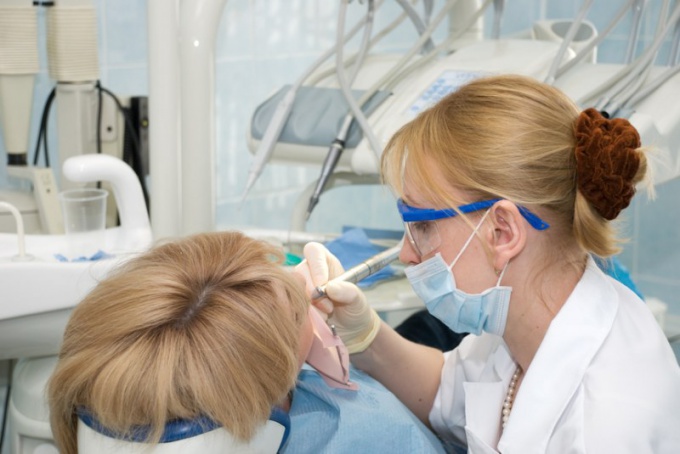Expectant mothers often refuse to visit the dentist during pregnancy, believing that used in dentistry painkillers can harm the baby, and treatment without anesthesia it is not possible. But it is not necessary to postpone visit to the dentist until after the birth because of fears of anesthesia, though, because the infection that develops in the diseased tooth may adversely affect the health of mother and child. And, not deciding on treatment immediately after the problem occurs, the woman risks losing the tooth or getting a serious disease of the periodontium.
Before choosing a safe for the fetus anesthetic, it is worth considering, and if you need pain relief? And in what cases it is possible to do without it?
For example, if the usual treatment of caries, it can be done without anesthesia, it all depends on the pain threshold of the expectant mother and her health. Of course, during the tooth removal, dentures and deep caries without anesthesia is not necessary.
In any case, if possible, a visit to the doctor is postponed until the second trimester, at this time, first, the uterus is much less excitable, and secondly, the placenta after 14 weeks already formed and constitutes a protective barrier for the baby, protects it from harmful substances.
When choosing the anesthetic should understand how it works. Usually anesthetic is a drug on the basis of adrenaline. As a result, pain is blocked and the bleeding stops. Adrenaline can also cause an increase in uterine tone and blood pressure, which is very dangerous for the mother and may cause abortion.
Currently used drugs with a minimum dosage of adrenaline that allows their use for the treatment of pregnant women. The most popular drug in this group is "Ultrakain." "Ultrakain" does not cross the placental barrier, and therefore is absolutely safe for the fetus. Also "Ultrakain" not passes into breast milk and, therefore, can be used for dental treatment in nursing women. In each case, the doctor selects the required dosage based on the individual characteristics of the woman and the stage of her pregnancy.
Thus, the expectant mother not only possible but also need to treat the teeth, especially at the present time it is absolutely safe for her health and the health of the child.
So whether you need anesthesia?
Before choosing a safe for the fetus anesthetic, it is worth considering, and if you need pain relief? And in what cases it is possible to do without it?
For example, if the usual treatment of caries, it can be done without anesthesia, it all depends on the pain threshold of the expectant mother and her health. Of course, during the tooth removal, dentures and deep caries without anesthesia is not necessary.
In any case, if possible, a visit to the doctor is postponed until the second trimester, at this time, first, the uterus is much less excitable, and secondly, the placenta after 14 weeks already formed and constitutes a protective barrier for the baby, protects it from harmful substances.
How to choose the anesthetic?
When choosing the anesthetic should understand how it works. Usually anesthetic is a drug on the basis of adrenaline. As a result, pain is blocked and the bleeding stops. Adrenaline can also cause an increase in uterine tone and blood pressure, which is very dangerous for the mother and may cause abortion.
Currently used drugs with a minimum dosage of adrenaline that allows their use for the treatment of pregnant women. The most popular drug in this group is "Ultrakain." "Ultrakain" does not cross the placental barrier, and therefore is absolutely safe for the fetus. Also "Ultrakain" not passes into breast milk and, therefore, can be used for dental treatment in nursing women. In each case, the doctor selects the required dosage based on the individual characteristics of the woman and the stage of her pregnancy.
Thus, the expectant mother not only possible but also need to treat the teeth, especially at the present time it is absolutely safe for her health and the health of the child.

